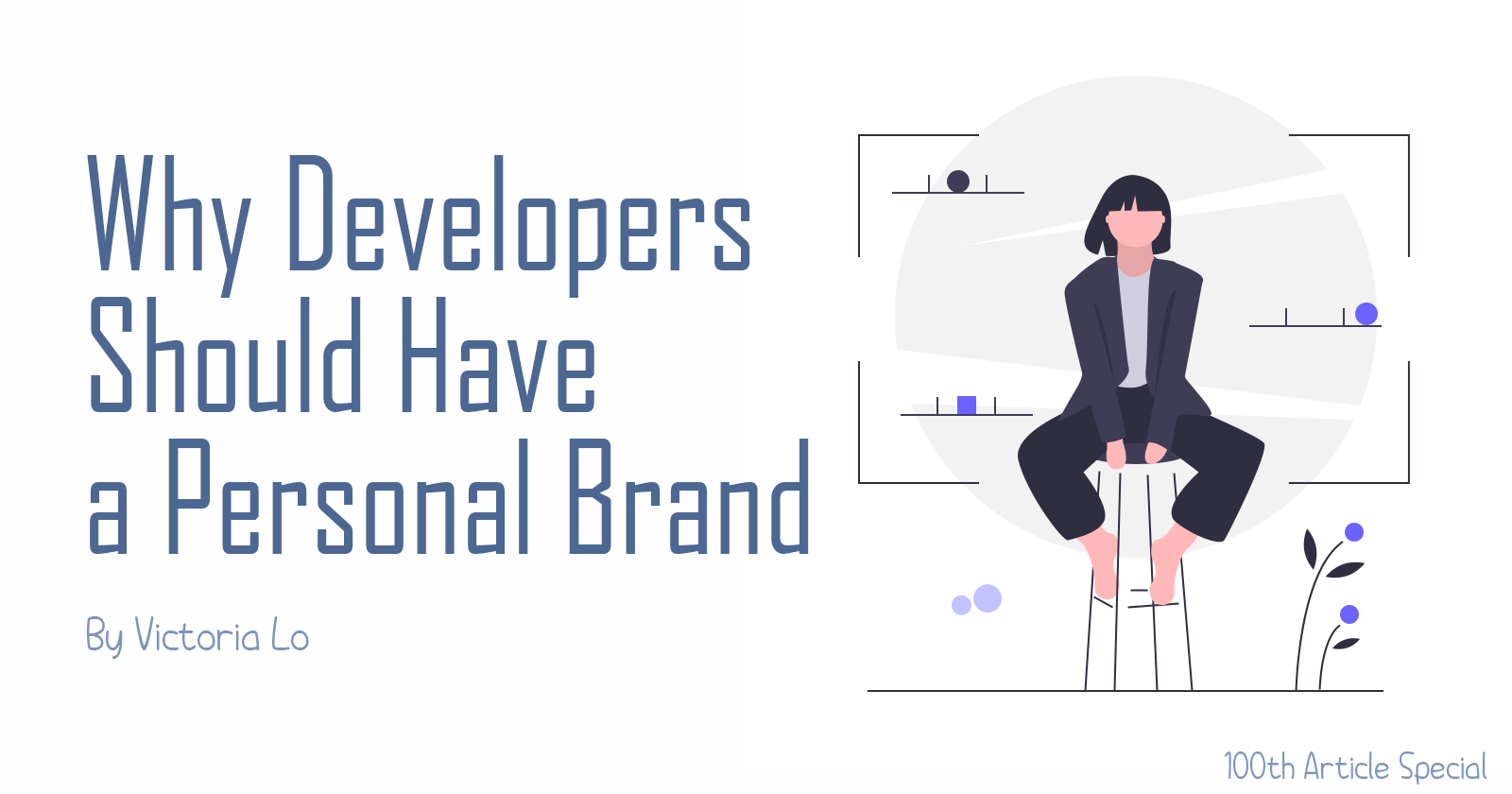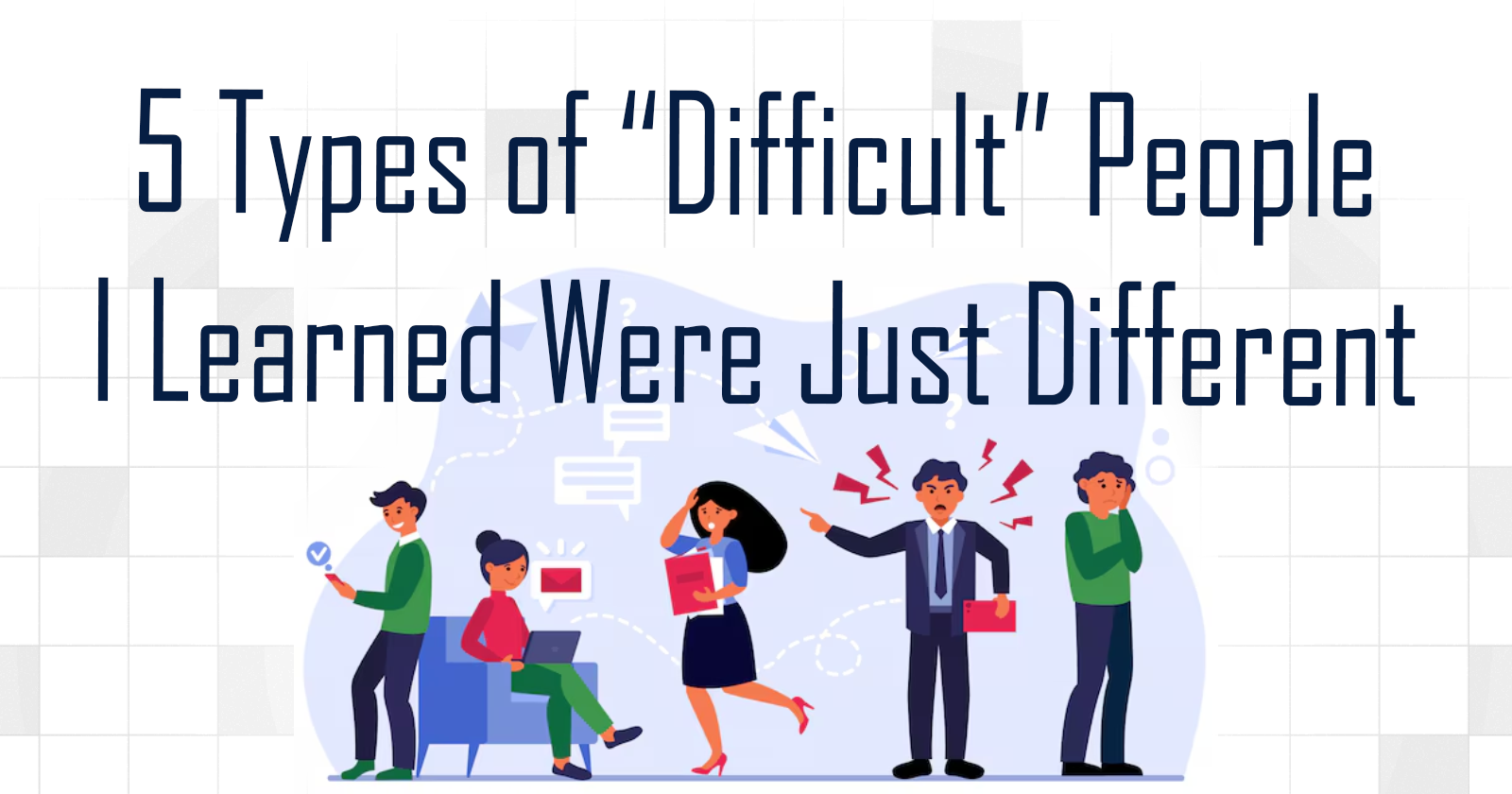Why a Personal Brand is Important for a Developer

Jeff Bezos once said, “Your brand is what people say about you when you’re not in the room.” Personal branding is often conceptualized as how you view yourself but in fact, it is the opposite. It is about how others perceive you.
Hello everyone! In this article, let's talk about what is personal branding, why does it matter to you as a developer and how you can get started developing your personal brand.
Just a side note...
Before we get started, I'd like to mention that this article marks the 100th article I am publishing on Hashnode! It's truly been a blessing to be writing on this wonderful platform. Thank you to the Hashnode team and community for their hard work and support!

What's a Personal Brand?
A personal brand is a combination of your unique skill sets, experiences and character traits that people perceive and say about you.
Unlike a simple cover letter or resume, a strong personal brand can enhance your social presence, credibility and reputation. A personal brand not only creates an impactful impression on people, it also allows you to voice your values, missions, visions and goals to the public.

Some great examples of software engineers with solid personal brands:
- Brad Traversy
- Kassandra Sanch
- Florin Pop
- Anna McDougall
- Angie Jones
- Annie Bombanie
- Robin Wieruch
- Sarah Shook
- Danny Thompson
- John Sonmez
Why does it matter?
Some may probably think:
But I'm a software engineer, can't I just focus on improving my skills and building my portfolio? It's such a waste of time to be building a personal brand.
Here are some reasons why it matters.
1. Visibility
In 2019, Bill Gates stated, "If you don't exist online, you don't exist at all." He mentioned this in terms of businesses, as a way to encourage them to start setting up online stores and connect with their customers better through social media.
I think this quote also applies to individuals. After all, a personal brand is like your own company, where you are the CEO and you are in charge of developing your own brand. Having a personal brand lets you stand out from the crowd and be more visible.

2. Opportunities
The biggest benefit of being visible is that opportunities will naturally come to you; because credible online reputation will make you more trustworthy in comparison to those without any online presence. You are more familiar, more respectable, and so it is easier for others to approach you and offer opportunities.
A CareerBuilder survey found that over 70% of employers today use social media to screen potential candidates and about 47% of them said they would not call for an interview if the candidate does not exist online. Many candidates with an online presence that indicates their qualifications will easily stand out and are more likely to receive offers.

My current job at PayPal was highly attributed to my blog and social media. If it weren't for my consistent efforts on my blog, which showcases my passions, interests and skills, it would have been hard to stand out and find a job here.
Besides receiving more opportunities, a personal brand also lets you create your own opportunities. If you have a side project, you can leverage your personal brand to showcase and promote it. Or if you wanted to reach out to a more well-known developer for collaboration, it will be easier to get a reply if he/she has heard of you before.
Ultimately, you can go beyond your daytime job with a personal brand.
3. Engage with your community
As you build a personal brand, you will naturally start communicating and engaging more with your community. This can help you learn faster and more deeply in topics you care about. By sharing your content, participating in discussions and consuming others' content, you are reinforcing your learning actively. Instead of only passively reading, active learning is more effective and long-lasting.
Plus, you can meet lots of amazing people online that you could have never met if you do not have a personal brand. The world is now connected via the internet. If you are not on the internet, you are not part of this highly connected world, and you would miss out on discovering wonderful people and communities.

Getting Started
If you are now convinced on the huge value having a personal brand can bring, how do we get started? Here are some tips.
1. Choose a Medium
First, think about what kind of medium you want to use to start being more visible. If you're comfortable speaking on camera and don't mind video editing, then a video medium would be great. Use platforms such as YouTube to start building an audience and become more discoverable.
If you just want to stick to speaking with no video, then an audio medium would be fine. Start a podcast on a topic you like and stick to it. Eventually, you will attract like-minded people who want to hear from you.
If speaking is not for you, then write. A written medium is also another great path to choose. It doesn't matter if you think you are not very good at writing. I have a series on Blogging Tips to help you get started.

2. Share Valuable Content
After you've chosen a medium, start sharing valuable content. People will follow, subscribe and read your content if it provides value for them.
Types of content you can share are:
- Personal experiences
- Tutorials
- Dev Logs
- Today I Learn
Try to start with a niche, something that you want to be known for. If you are learning something new, why not create some content about it as you learn? If you know something that you think may help others, why not share it? As long as you share any content that others can find value from, people will start coming back to your blog, channel, podcast, etc.
3. Leverage Social Media
This is a fuel you will need to drive the growth of your personal brand. Your social media channels will represent you as a person. It is your online identity.
Start with channels where you know you can find your target audience like:
- Quora
- Github

Setting up social media accounts is just the first step. The next step is to consistently be active on the platform. Post, comment and actively engage with the community in the platform. Share other content creators' work. Build and make new connections. Gradually, you'll be involved in the community as a valuable contributor and people will spread your content and support the value you bring.
4. Be Present in the Community
While it is great to be active in social media, you can take it further by increasing your presence in your community.
You can:
- Collaborate in hackathons
- Contribute to Open Source
- Participate in Tech Talks
- Get involved, build relationships with others
By really participating in events and showcasing more of your knowledge or skills on a certain topic, you are establishing yourself as a reputable brand. Collaborating with others can help you learn from others and gain insights from them. Again, it is about creating value for others. Sharing your knowledge, experiences and skills to help others grow is how your personal brand can have a solid positive image.
In Conclusion
Building a personal brand is not an easy feat. But the ones who work hard, genuinely wants to help others and give back to their communities are the ones who will deserve the great opportunities and achievements that will come their way.
I'll end this article with one last advice: start now. It's always better to start than never. You may think you're not ready now and will make mistakes along the way. But to be honest, no one is ever 100% ready when they start. So start.
Thanks for reading this rather long article. There're still some points I'd like to add but it's getting too long so I'll save it for another article. If you find this article insightful or helpful in some way, please share it with your community and give a like! Stay safe and cheers!





